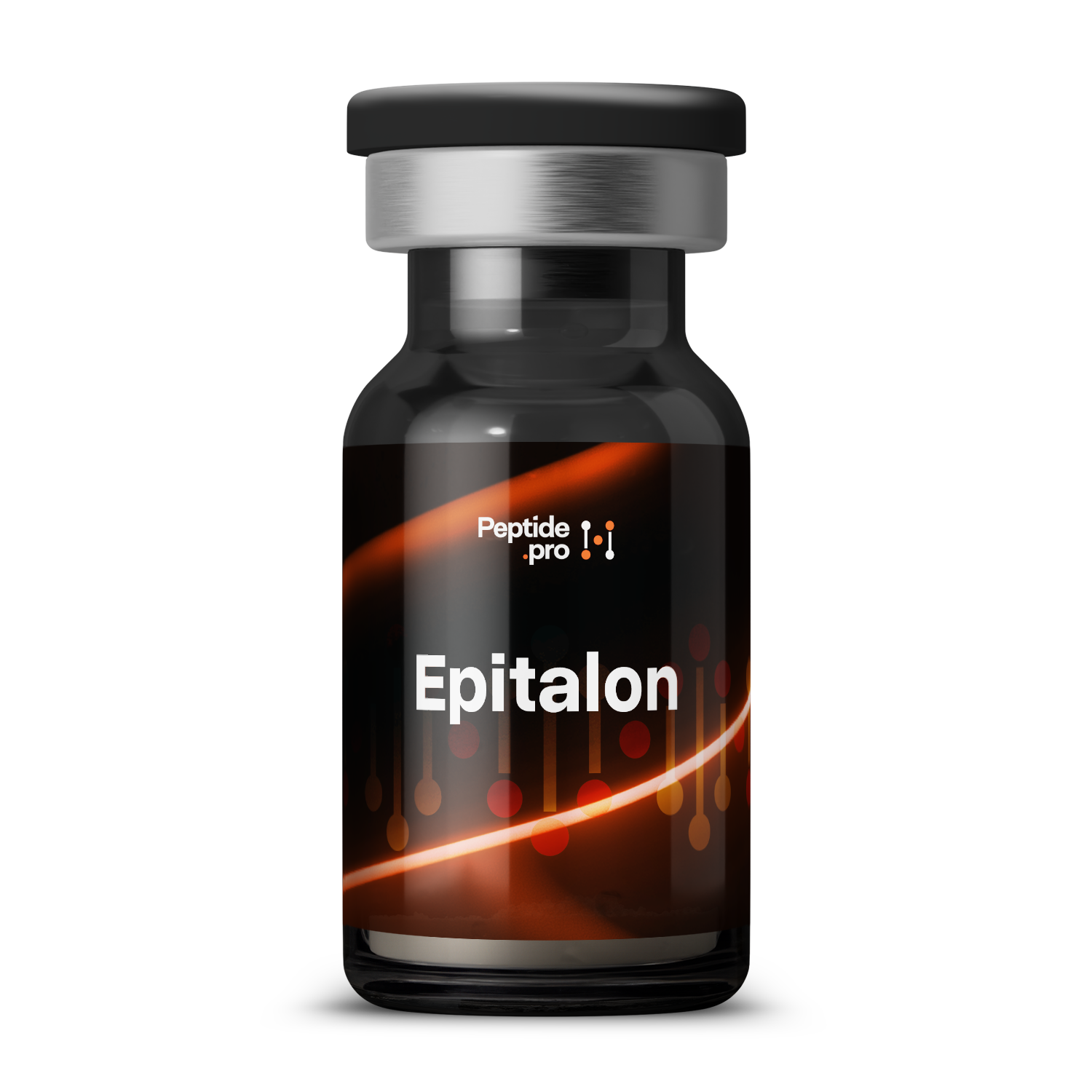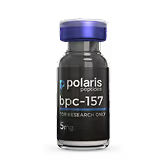Epitalon
Epitalon is a small four–amino-acid peptide that helps regulate aging processes by supporting the enzyme telomerase, which maintains chromosome ends. In human studies, it has been linked to improved sleep patterns and modest increases in immune-cell health. It’s primarily used in research on anti-aging and circadian rhythm support.
Compound Overview
About the product
The peptide comprises the tetrapeptide sequence alanine-glutamic acid-aspartic acid-glycine with free N- and C-termini. It contains only natural amino acids and no additional chemical modifications. Research-grade material is produced by Fmoc solid-phase peptide synthesis and purified by HPLC to ≥95 percent purity. Identity and purity are confirmed by mass spectrometry.
Epitalon is thought to upregulate telomerase reverse transcriptase expression in somatic cells, potentially supporting telomere elongation in immune cells. It also appears to influence pineal melatonin secretion, normalizing circadian rhythms. The peptide may act at the transcriptional level by interacting with gene promoters for telomerase and melatonin-synthesizing enzymes. Precise receptor interactions in humans remain under investigation.
Epitalon peptide benefits have been evaluated primarily for potential anti-aging and chronobiotic (time-rhythm regulating) effects. In small clinical studies, elderly subjects receiving Epitalon showed increased telomere length in blood leukocytes and improved sleep quality. Patients also exhibited modest normalization of circadian melatonin profiles. Further trials are needed to confirm clinical efficacy and optimal dosing.
Reported adverse effects in human studies have been minimal, with occasional mild headache or gastrointestinal discomfort. No serious safety issues or hormonal imbalances were documented in trials up to several weeks in duration. Safety in pregnancy, lactation, and long-term administration beyond study periods has not been established. Basic monitoring of liver and kidney function is advisable during research use.
Epitalon is synthesized by Fmoc solid-phase peptide synthesis, sequentially coupling four amino acids on a resin support. After cleavage, the crude peptide is purified by preparative HPLC to research-grade purity. Mass spectrometry confirms correct sequence and molecular weight. Production follows peptide-compounding standards under good laboratory practice.
Epitalon is classified for laboratory research use only and lacks approval from the U.S. FDA, EMA, or other major regulatory bodies. It cannot be prescribed or sold as a therapeutic agent. Investigators may obtain it under investigational peptide regulations, which vary by jurisdiction. No clinical or over-the-counter formulations are available.
Clinical protocols have administered 1 mg to 5 mg subcutaneously once daily for 10 to 20 days. Some studies also explored oral dosing at similar daily amounts. No standardized dosing guidelines exist outside these limited trials. All administration should adhere to institutionally approved research protocols.
- Do restrict use to approved research studies with ethical oversight.
- Do monitor telomere length and circadian markers where feasible.
- Don’t combine with other telomerase-modulating agents without scientific justification.
- Don’t use during pregnancy, lactation, or in patients with active malignancy.
- Q: Does Epitalon reverse aging?
- A: Small studies report telomere length increases, but clinical anti-aging benefits remain unproven.
- Q: How soon are effects seen?
- A: Changes in biomarkers like telomere length and sleep quality have been observed after 10–20 days.
- Q: Can it be taken orally?
- A: Limited oral administration has been studied, but most data are from subcutaneous dosing.
For research use only. Not approved for medical use.


